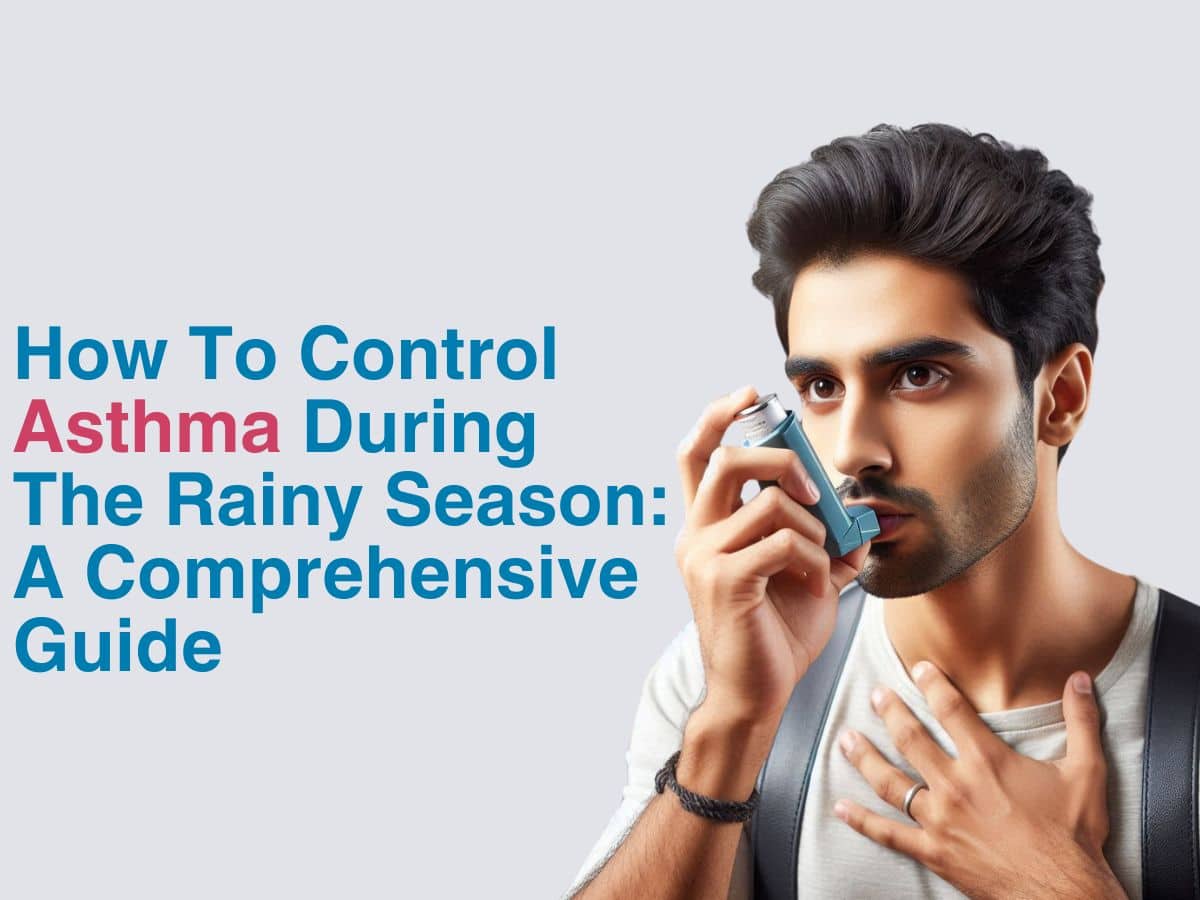
How To Control Asthma During The Rainy Season: A Comprehensive Guide

The monsoon is meant to be fun, but for many asthma sufferers, the rainy season can be a challenging time.
The damp weather, increased mold growth, and higher pollen counts can trigger asthma symptoms and lead to more frequent attacks.
This guide will provide you with effective and proven strategies to manage your asthma during wet weather and help you breathe easier throughout the monsoon season.
Understanding Asthma Triggers in Wet Weather
Rainy weather can exacerbate asthma symptoms due to several factors:
- Increased humidity
- Mold growth
- Higher pollen counts
- Dust mites thriving in damp conditions
Identifying these triggers is the first step in managing asthma during the rainy season.
Tips for Avoiding Asthma Attacks in the Rain
One of the easiest ways to avoid an asthma flair-up is to stay indoors during very heavy rainfall, this can help stay away from many of the potential asthma triggers.
Keep the windows closed to prevent damp air from entering your home and consider purchasing a dehumidifier to control moisture levels at home, especially if you live in a very humid place.
If you have no options but to venture outside, wear protective gear like masks, and scarves.
Managing Asthma Triggers During Wet Weather
Being aware of triggers and preventing them is the easiest way to stay safe during the monsoon. So consider cleaning damp areas in your home regularly, use allergen-proof bedding covers and vacuum your house to keep the dust at bay.
If you have the habit of keeping’s plants indoor, consider removing them as they tend to harbor mold.
How to Stay Safe from Asthma During the Rainy Season
A few tips to stay safe this monsoon season include:
- Always carry your inhaler
- Follow your asthma action plan diligently
- Monitor your peak flow readings daily
- Stay up-to-date with your medications
Rainy Weather Asthma Prevention Strategies
An ounce of prevention is and will always be better than treatment! So, do everything in your power to strengthen your immune system! Eat healthy, well-balanced meals, exercise regularly, preferably indoors, practice stress reduction techniques like Yoga, meditation and deep breathing.
If you like in an especially polluted area, getting an air purifier can help keep your air clean.
Effective Ways to Reduce Asthma Flare-Ups in Monsoon
- Take your preventive medications as prescribed
- Avoid known triggers like cigarette smoke and strong odors
- Keep your rescue inhaler easily accessible
- Stay hydrated to keep your airways moist
Protecting Against Asthma Attacks in Rainy Conditions
- Use a warm scarf to cover your nose and mouth when outside
- Change out of damp clothes immediately upon returning home
- Take a hot shower to clear your airways after being outdoors
- Use nasal saline rinses to clear allergens from your nasal passages
Mosquito Prevention Tips for Rainy Season
Let’s channel our inner Van Helsing and ward off these tiny vampires!
- Use mosquito repellents and nets.
- Wear full-sleeved clothing when outdoors.
- Eliminate standing water around your home.
Strategies for Asthma Management in Wet Weather
- Create an asthma-friendly environment at home and work
- Invest in a good quality humidifier and dehumidifier
- Consider immunotherapy for long-term allergy management
- Stay informed about new asthma management techniques
Conclusion
Reducing the risk of asthma attacks in rainy weather requires a multi-faceted approach. By understanding your triggers, following prevention strategies, and working closely with your healthcare provider, you can effectively manage your asthma during the rainy season.
Remember, staying prepared and proactive is key to breathing easier and enjoying the monsoon season without worry.
Frequently Asked Questions

Dr. S. Swathi Reddy
MBBS, MD (Pulmonary Medicine)
Associate Consultant & Interventional
Pulmonologist






